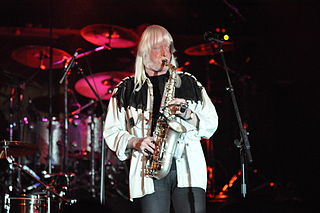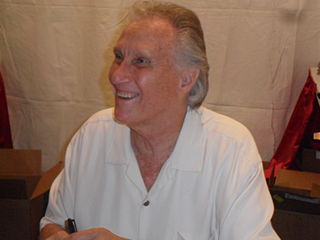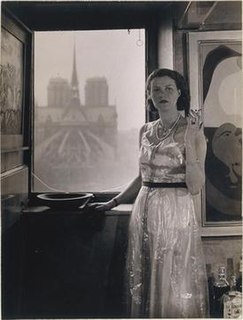A Quote by Chiwetel Ejiofor
I'm constantly discovering things. Like Bobby Bland. Right now I suppose I'm into the Eighties, which turned out to be a great musical period.
Related Quotes
Keynes was a great economist. In every discipline, progress comes from people who make hypotheses, most of which turn out to be wrong, but all of which ultimately point to the right answer. Now Keynes, in 'The General Theory of Employment, Interest and Money,' set forth a hypothesis which was a beautiful one, and it really altered the shape of economics. But it turned out that it was a wrong hypothesis. That doesn't mean that he wasn't a great man!
I was going to be a writer, and that turned into journalist. And then that turned into a career in children's literature, which turned into early childhood education, which turned into psychology, which turned into premed, which turned into nursing school, which turned into communication, which turned into marketing and advertising.
All the more a cheesy musical seems fake, so it requires a level of honesty to be injected or an acknowledgement of that which is fake and fun about musicals, and it isn't necessarily escapist. Like there are great musicals like Once, which feel very almost like a mumblecore musical. I love Once. It's great.
I feel like my life is so scattered right now. Like it's all the small pieces of paper and someone's turned on the fan. But, talking to you makes me feel like the fan's been turned off for a little bit. Like things could actually make sense. You completely unscatter me, and I appreciate that so much.
I always thought that art that is produced somehow has to reflect the zeitgeist or the ambiance and the time and the history in which it is produced. I think it's inescapable. It's like we look back now, at work done savoring the thirties, and you can almost tell it was done during that period of time. Now maybe, that's a style of period or something, I don't know. I think my work, or the things that interest me, come out of my reaction to history.
Why compose works that have to be re-created every time they are performed? Because definitive, once-and-for-all developments seem no longer appropriate to musical thought as it is today, or to the actual state that we have reached in the evolution of musical technique, which is increasingly concerned with the investigation of a relative world, a permanent 'discovering' rather like the state of 'permanent revolution'.
I think what we need to do is to step back as a society and say okay, we've kind of turned things upside-down. We have moved away from the nuclear family, in which the man always works and the woman stays home. How are we going to rearrange things now? We've done the first part of the revolution, we've turned everything on its head, but we haven't figured out what structures will actually work in this new world.
We're dealing with music that is being played by traditional instruments in a specifically built building called a concert hall.
But classical is not - the reference is wrong, because classical on one hand refers to one period in musical history, which is Mozart, Hayden, Beethoven, which is a fine period in musical history, but it was a while ago.On the other hand, it sort of alludes to some kind of "class," which A, is not true; B, is kind of detrimental to the whole idea. Because the point is that this music is available and it's actually relatively reasonably priced.
[On John Tunnard:] One day a marvelous man in a highly elaborate tweed coat walked into the gallery. He looked a little like Groucho Marx. He was as animated as a jazz-band leader, which he turned out to be. He showed us his gouaches, which were as musical as Kandinsky's, as delicate as Klee's, and as gay as Miró's.
You hung with me when all the others turned away, turned up their noses We liked the same music, we liked the same bands, we liked the same clothes Yeah we told each other that we were the wildest, the wildest things we'd ever seen Now I wish you would have told me, I wish I could have talked to you Just to say goodbye, Bobby Jean.




































